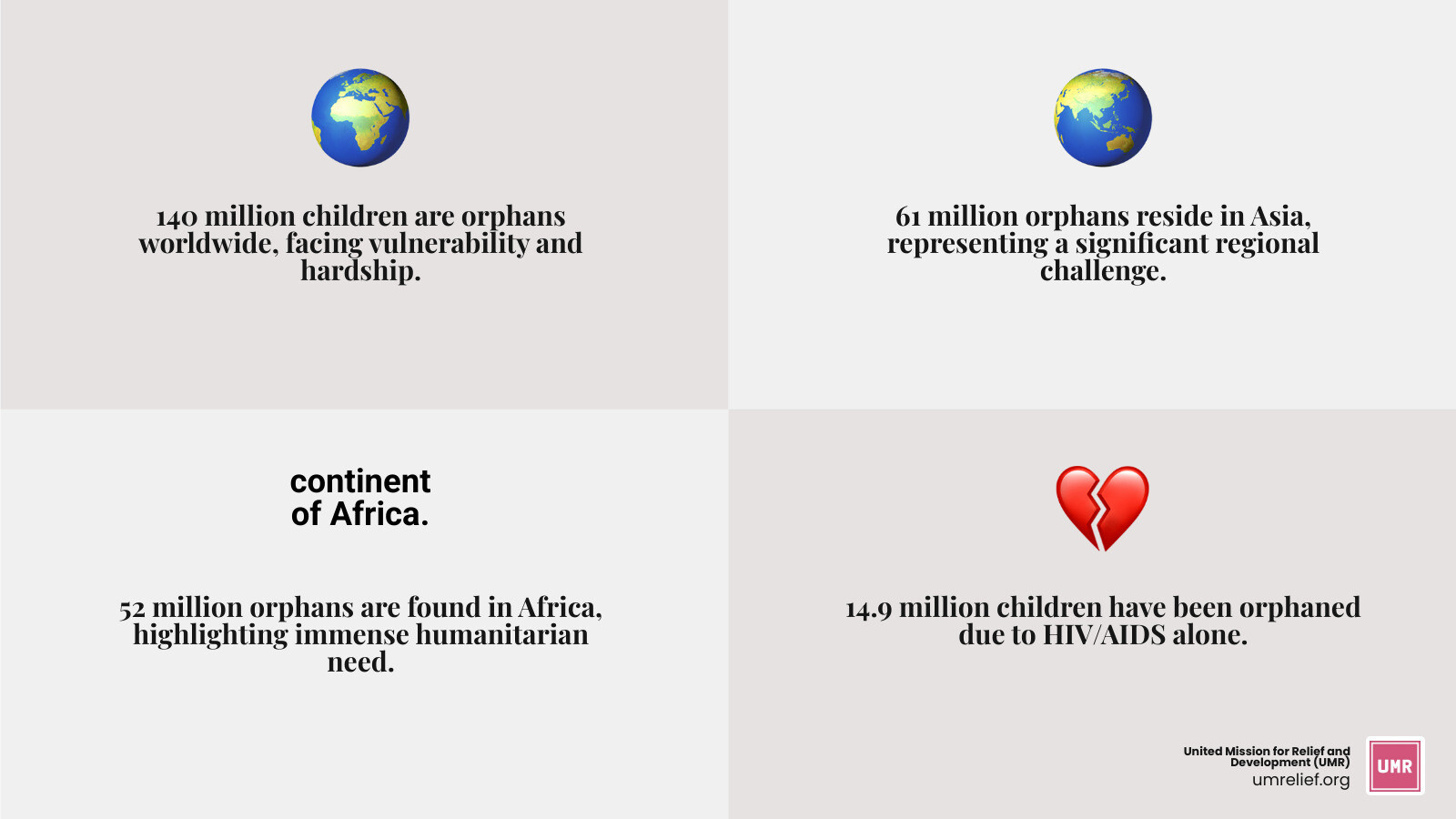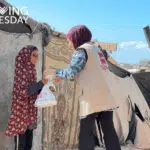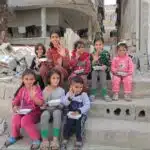Charity for orphan children: Top Guide for 2025
The Global Orphan Crisis: A Call to Action
Charity for orphan children addresses one of the most critical humanitarian needs of our time. With over 150 million children worldwide orphaned or acting as caregivers for compromised adults, the scope of this crisis demands immediate and sustained support.
Every 18 seconds, another child becomes an orphan. Behind this statistic are vulnerable children facing malnutrition, lack of education, and dangerous living conditions. The good news is that effective charities are making a real difference through family preservation, direct care, and community empowerment.
The numbers tell a sobering story: 140 million orphans exist worldwide, with 61 million in Asia and 52 million in Africa. HIV/AIDS alone has orphaned 14.9 million children, while conflicts and natural disasters continue to separate families daily.
Finding the right charity means looking for organizations that prioritize family-first approaches, demonstrate financial transparency, and show measurable impact. The most effective charities focus on keeping families together rather than institutionalizing children.
At UMR, we’ve seen how strategic digital engagement and compelling storytelling can amplify support for charity for orphan children initiatives. Through coordinated seasonal drives, our campaigns have raised millions, directly aiding vulnerable children and families in communities around the world.
Understanding the Scope of Need
When we talk about charity for orphan children, we’re addressing a complex crisis. The numbers are staggering, but behind each statistic is a child whose life has been turned upside down by circumstances beyond their control.
Let’s start with understanding who these children are. Research distinguishes between a “single orphan” who has lost one parent and a “double orphan” who has lost both. This distinction became important during the AIDS pandemic, as organizations realized losing even one parent could devastate a child’s life. Many children are also “social orphans”—their parents are alive but unable to care for them, leaving them to face similar, if not greater, risks.
Several interconnected factors drive this crisis:
- Poverty is the most devastating driver. When families cannot afford necessities, parents may place their children in institutions, hoping for a better life. Others end up on the streets or in child labor.
- Disease and health crises tear families apart. HIV/AIDS alone has orphaned 14.9 million children. More recent emergencies, like the Ebola outbreak in Congo, show how quickly diseases can escalate the crisis.
- Conflict and war separate families, displace children, and lead to parental loss. Over 12 million refugee children have lost their homes. Our work with the plight of Rohingya refugees in Bangladesh (Cox’s Bazar) shows how devastating conflict is for vulnerable children.
- Natural disasters, abuse, neglect, and trafficking also force children from their homes and exploit their vulnerability.
These causes create a tangled web of challenges. In crisis zones like Yemen, Sudan, and Gaza, our teams steer security risks and damaged infrastructure to reach children in need.
The Risks Faced by Vulnerable Children
When a child loses stable care, they face dangers that can derail their future. The absence of consistent support creates ripple effects that touch every aspect of their lives.
Without parental guidance, children may experience impaired development, struggling with emotional regulation and school. Many end up in street life, facing violence and exploitation, or are forced into child labor. The most heartbreaking cases involve trafficking.
The dangers of institutional orphanages are also clear. Research shows institutional care can cause developmental delays and psychological damage due to a lack of individual attention. This is why effective charity for orphan children organizations now prioritize family-based care over institutionalization, as children thrive in loving family environments.
Lack of education robs children of their future, while malnutrition and poor healthcare threaten their physical and mental development. Understanding these risks allows for targeted, compassionate interventions that make a real difference.
Key Approaches of a Top Charity for Orphan Children
An effective charity for orphan children understands that every child deserves to thrive, not just survive. The most impactful organizations have moved beyond providing basic needs to embracing approaches that create lasting change.
At the heart of modern orphan care is the family-first model. This is a fundamental shift toward keeping children in loving family environments—whether with biological parents, relatives, or foster families. The goal is to keep families together, not to fill orphanages. This philosophy leads to holistic support that addresses a child’s physical, emotional, educational, and social development.
Community empowerment is another cornerstone. Instead of temporary fixes, the best organizations strengthen entire communities by training local leaders and supporting economic initiatives. This builds local capacity to protect children long-term. The ultimate goal is creating sustainable solutions that break cycles of poverty and equip children with skills for life.
Faith-based organizations play a meaningful role, often reaching communities others cannot. Driven by deep convictions, they bring material aid, spiritual comfort, and moral support.
At UMR, our approach is guided by these principles. We see how strong partnerships and community empowerment create ripple effects that transform entire regions.
Family Preservation and Reunification
The most powerful intervention is often family preservation, which supports struggling families to prevent separation. This means addressing root causes like poverty. Financial support, vocational training for parents, and counseling can provide the stability needed to keep a family intact. When children are already separated, reintegrating children into safe and supportive family environments is the priority. Our UMR’s family sponsorship and support programs embody this philosophy, working to preserve and strengthen family bonds.
Direct Care and Sponsorship Programs
While family preservation is ideal, many children need immediate help. Child sponsorship programs create powerful connections between donors and children, ensuring they receive essentials. Sponsorship provides food for healthy development, safe shelter, and life-changing medical aid, from routine check-ups to complex surgeries. Our guide on How to Donate to Orphans explains how these contributions create meaningful change. For children who cannot immediately return to family, programs like foster care and Healing Homes offer nurturing, family-like environments. The story of Meet Lukman – A UMR Success Story illustrates how direct support can transform a child’s life.
Education and Empowerment Initiatives
Education represents pure hope for vulnerable children, bridging their current circumstances to a brighter future.
As our research on the Importance of Education for Refugee Children highlights, school provides structure, normalcy, and healing. School fee support removes a major barrier, keeping children out of child labor or early marriage. Vocational training for teens offers practical skills for independence, while life skills training teaches them to steer relationships and make healthy decisions. Play-based learning helps children who have experienced trauma process emotions and develop cognitive skills in a safe setting. UMR’s empowerment and education initiatives are designed for long-term impact, creating ripple effects that change entire communities.
How You Can Make a Difference
The global orphan crisis, with 150 million children in need, can seem overwhelming. But the truth is, your individual contribution matters. Every dollar donated, hour volunteered, and story shared creates ripples of change. Behind every successful charity for orphan children program are thousands of caring individuals who decided to act. There is a meaningful way for everyone to help.
Financial Contributions
Financial support gives organizations like UMR the flexibility to respond to emergencies and sustain long-term programs.
- One-time donations provide immediate relief, funding emergency medical care, a month of meals, or school supplies.
- Monthly giving provides predictable income, helping organizations plan ahead and build stronger programs. Even small monthly amounts add up to significant support.
- Sponsoring a child creates a personal connection. You offer a child the powerful knowledge that someone cares about their future while receiving updates on their progress.
- Fundraising multiplies your impact by engaging your community through events or online campaigns.
- Donating crypto offers a modern, tax-advantaged way to contribute.
- Targeted campaigns like Donate Eid Gifts during holidays bring joy directly to children.
Giving Your Time and Voice
Your time and voice are just as valuable as financial gifts.
- Volunteering allows you to share your skills, whether in social media, event planning, or administrative tasks, freeing up staff to focus on program work.
- Advocacy means using your voice for those who can’t speak for themselves. Contact representatives, sign petitions, and speak up for child welfare.
- Spreading awareness on social media is incredibly powerful. Sharing a post or a success story introduces the issue to your network.
- Sharing stories of impact, like Meet Lukman – A UMR Success Story, shows the human face behind the statistics and inspires action.
Every person who has made a difference started with a single decision to care. Your contribution, whatever its form, joins a global movement of compassion that is changing lives daily.
How to Find a Reputable Charity for Orphan Children
With countless organizations available, finding the right charity for orphan children can feel overwhelming. Not all charities are created equal, so performing due diligence is essential to ensure your generosity creates lasting change. When you choose wisely, your donation can reunite a family, send a child to school, or provide life-saving medical care.
Vetting a Charity’s Effectiveness
To vet a charity, look for these key indicators:
- Transparency: Reputable organizations proudly publish financial statements and annual reports. If you can’t easily find how they spend their money, consider it a red flag.
- Independent Ratings: Look for ratings on sites like Charity Navigator and GuideStar. These platforms analyze financial health, accountability, and transparency. A high rating indicates a well-managed organization.
- Impact Reports: Review reports for specific data. How many children did they help? How many families were reunited? Effective charities measure their success and share concrete results.
- Programmatic Focus: While low overhead is appealing, some administrative cost is necessary. Focus on whether the organization prioritizes evidence-based, sustainable solutions like family-based care and community empowerment over institutionalizing children.
The Impact of Your Support for a Charity for Orphan Children
When you choose a well-vetted charity, your support transforms into measurable, life-changing outcomes. At UMR, we’ve witnessed this change across Jordan, Palestine, Lebanon, Sudan, Kenya, Yemen, Pakistan, Bangladesh, Somalia, Gaza, Turkey, and the United States.
- Success Stories: Our family preservation programs have prevented over 1,000 children from entering foster care and reunited hundreds with their families.
- Measurable Outcomes: In education, our support has helped millions of out-of-school children gain access to schooling. In Egypt alone, we’ve helped over 75,000 children overcome poverty.
- Health Improvements: Donor contributions have funded thousands of medical procedures, from routine vaccinations to complex surgeries, and supported nutrition programs for millions of children.
- Community Strengthening: By empowering families with vocational training and resources, we help build resilient communities. Our work in areas like Pakistan Child Protection demonstrates how integrated programs create lasting change.
Your support doesn’t just help one child; it creates waves of positive change that strengthen families, empower communities, and build hope for the future.
Conclusion: Be the Change for a Child in Need
Behind the staggering statistic of over 150 million children worldwide in need are real children with hopes and potential. They face malnutrition, lack of education, and exploitation. Yet, there is hope. The power of informed giving can transform lives, one child at a time.
When you support a reputable charity for orphan children, you invest in proven, family-first models, holistic support, and sustainable solutions that break cycles of poverty. Your role is significant. A monthly donation, sponsoring a child, or volunteering your skills creates ripples of positive change.
Organizations like United Mission for Relief and Development (UMR) focus on transparent, sustainable aid through impactful partnerships. Our holistic approach builds lasting solutions through family sponsorship and comprehensive child protection programs. This work has a multiplier effect: helping one child or family uplifts an entire community.
Every act of kindness matters. This is about building a world where every child has the right to safety, stability, and love. The global orphan crisis can be solved with committed partners, evidence-based approaches, and supporters like you.
Ready to make a difference? Join us in protecting vulnerable children and see how your support can transform lives. Together, we can ensure no child faces their challenges alone.











